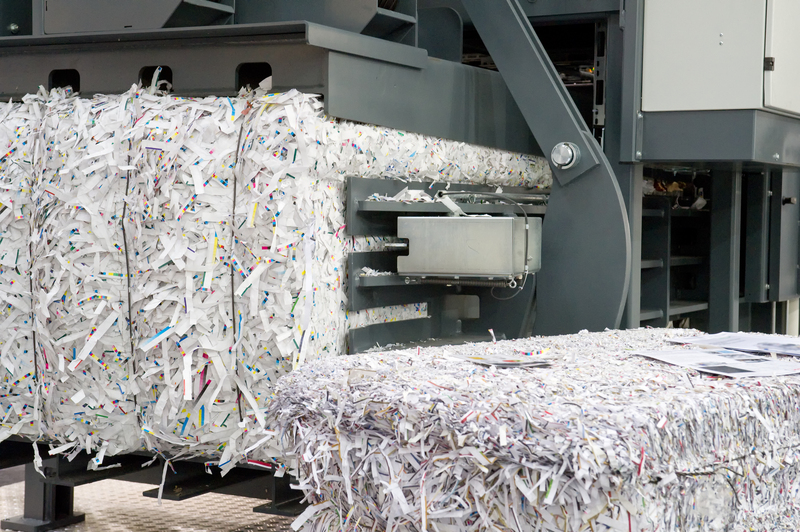Reducing Waste by Recycling Old Kitchen Pots and Pans
In our quest for a more sustainable lifestyle, the kitchen is often overlooked as a source of waste. Yet, old cookware, including kitchen pots and pans, can quickly pile up, ending up in landfills and contributing to environmental issues. Recycling old pots and pans not only lessens your environmental footprint but also opens up avenues for creativity, resourcefulness, and savings.
Why Should We Recycle Old Kitchen Pots and Pans?
Every year, millions of discarded cookware items add to the mountain of waste at landfills. Most old pots and pans are made from materials like stainless steel, aluminum, cast iron, and copper--all of which are recyclable to various extents. Reducing waste by recycling not only conserves natural resources but also minimizes greenhouse emissions from manufacturing new products.
- Environmental Impact: Manufacturing metals consumes significant energy and causes pollution. Recycling these metals from old kitchen cookware can substantially reduce this impact.
- Landfill Reduction: Pots and pans do not decompose easily and can remain in landfills for generations. Properly recycling them keeps waste from piling up.
- Resource Conservation: Recycling recaptures valuable materials, reducing the need for further mining and preserving natural resources for future generations.

Which Types of Kitchen Pots and Pans are Recyclable?
Not all cookware is created equal. Understanding which materials are eligible for recycling is essential to ensure that your efforts make a difference.
Common Recyclable Materials:
- Stainless Steel: Most recycling centers accept stainless steel cookware, provided all non-metal parts are removed.
- Aluminum: Recyclable and highly valued at scrap yards; be sure to remove plastic or rubber handles.
- Cast Iron: Suitable for metal scrap recycling, though quite heavy to transport.
- Copper: Sometimes found in high-end cookware; valuable but needs to be separated from other materials.
Materials That Are Difficult to Recycle:
- Nonstick Coatings: Teflon and similar coatings complicate the recycling process. Check with local facilities.
- Bakeware with Glass or Ceramics: Typically, these are not accepted as scrap metal, though some centers have special programs.
Always check with your local recycling center to confirm what items are accepted and if preparation is required.
How to Prepare Old Kitchen Pots and Pans for Recycling
Before recycling, it's crucial to prepare your cookware properly to increase the chances of successful processing. Here's how:
- Clean Thoroughly: Scrub off any food residue or grease; recyclers prefer clean metals.
- Remove Non-Metal Components: Detach handles, knobs, lids, and rubber or wooden parts.
- Sort by Material: Separating stainless steel from aluminum or copper can help the recycling facility process them efficiently.
- Check for Labels or Stickers: Peel off any adhesive labels that may interfere with recycling machinery.
Where to Recycle Old Kitchen Pots and Pans
Don't throw your old kitchen pots and pans in the household recycling bin. Instead, consider these options:
- Local Scrap Yards: Metal scrap yards almost always accept cookware made of steel, aluminum, or copper.
- Municipal Recycling Centers: Many cities have facilities that process household metals, though rules vary.
- Manufacturer Take-Back Programs: Some brands offer recycling or trade-in programs--check their websites for details.
- Charity Shops: If your pots and pans are still usable, donation is a sustainable alternative to recycling.
- Special Recycling Events: Certain towns host events for collecting hard-to-recycle items like cookware.
Tip: Contact your local recycling authority for up-to-date regulations before dropping items off.
Creative Ways to Upcycle Old Kitchen Pots and Pans
Recycling isn't the only way to reduce waste. Upcycling gives your old kitchenware a new lease on life, sparing the landfill and adding character to your living space. Here are some innovative ideas:
Garden Planters and Pots
Transform vintage pots and saute pans into rustic garden planters. Drill a few holes in the bottom for drainage, and you're ready to plant flowers, herbs, or succulents. Not only is this eco-friendly, but your garden will have a quirky, unique charm.
- Tip: Cast iron skillets make excellent planters for hardy plants or decorative moss arrangements.
Home Decor and Storage Solutions
- Wall Art: Arrange old pans and lids decoratively on your kitchen wall for a vintage look.
- Hooks and Organizers: Attach utensil hooks to an old baking tray to create a custom kitchen organizer.
- Lighting Fixtures: With some DIY skills, an old colander can be converted into a hanging lamp shade for an industrial feel.
- Desk Caddies: Repurpose saucepans into creative storage caddies for pens, keys, or craft supplies.
Pet Solutions
Large pots can be converted into food or water bowls for pets. Properly cleaned and sanitized, they are sturdy, hard to tip over, and can withstand outdoor use.
Kids' DIY Projects
Encourage creativity with safe, supervised DIY projects for children. Transform small pans into bird feeders or percussion instruments for fun learning.
Donating Pots and Pans: Extending Life Before Recycling
If your old kitchen pots and pans are still functional, donation is a meaningful way to reduce waste and help others in need. Many local charities, shelters, and thrift shops accept gently used cookware. This not only keeps waste out of the landfill but also supports individuals and families setting up homes on a budget.
- Women's Shelters and Transition Houses: These organizations often welcome donations of household items.
- Community Centers and Soup Kitchens: Non-profits that serve meals can make good use of all sizes and types of cookware.
- Donation Drop-off Points: Many municipalities offer centralized locations for donating usable items.
Guidelines for Donation
- Only donate cookware that is clean, rust-free, and has handles securely attached.
- Avoid donating heavily scratched nonstick pans, as most charities cannot accept them for health reasons.
Responsible Disposal: Last Resort Options
If recycling or upcycling isn't an option, it's essential to ensure responsible disposal of kitchen cookware. When thrown away thoughtlessly, pots and pans add unnecessary bulk to local landfills and may contain materials harmful to the environment. Check with your municipal waste authority for guidelines on bulky household goods. Some areas offer drop-off days, while others have specific instructions for metal waste.
Proper Disposal Tips
- Confirm with your local waste management company if pots and pans can go in curbside bulk metal pickup.
- Do not burn or bury old cookware, as this can release toxic chemicals and metals into soil and air.
- If none of the above options are available, wrap sharp edges or broken pieces securely before discarding to protect sanitation workers.
The Environmental and Social Benefits of Kitchen Cookware Recycling
The simple act of recycling or upcycling old kitchen pots and pans brings a wealth of benefits:
- Lower Carbon Footprint: Recycling metal uses less energy than making it from raw materials, resulting in lower emissions and conserving fuel.
- Economic Incentives: Some scrap yards pay for metal, offering a small reward for your eco-friendly effort.
- Job Creation: Recycling supports jobs in collection, sorting, and processing facilities nationwide.
- Less Dependency on Natural Resources: Every recycled pan means less mining and extraction, preserving our planet's ecological balance.
- Stronger Community Bonds: Donating usable cookware can strengthen local organizations and support those in need.

Frequently Asked Questions About Recycling Old Kitchen Pots and Pans
Can Nonstick Pans Be Recycled?
Nonstick pans pose challenges due to their coatings (like Teflon), which are not usually recyclable. Some specialty facilities may accept them after removing the coating. Confirm with your recycling center before attempting to recycle nonstick pans.
Is It Better to Recycle or Upcycle My Old Cookware?
Both options are excellent ways to reduce kitchen waste. If the pan is intact and creative reuse is appealing, upcycling provides functional or decorative value. If the item is too damaged, recycling recaptures valuable metals with a positive environmental impact.
Does Donating Used Pots and Pans Really Make a Difference?
Absolutely! Donating functional cookware to local charities or shelters extends their usefulness, keeps them in circulation, and supports those in need. This reduces both the demand for new products and the amount of waste heading to the landfill.
What If My Town Won't Accept Old Kitchenware?
Consider reaching out to regional recycling companies, scrap metal dealers, or community organizations. Online platforms like Freecycle or local social media groups can also help find someone who can reuse or repurpose your old pans.
Conclusion: Making Small Changes with Big Impact
By recycling old kitchen pots and pans, choosing to upcycle, or donating whenever possible, we take meaningful steps toward waste reduction and sustainability. These are not just actions for eco-enthusiasts; they're practical, impactful, and often rewarding in everyday life. Together, we can divert tons of waste from landfills, conserve resources, and inspire others toward greener habits.
Next time you're ready to retire an old saucepan or frying pan, remember: Reducing waste by recycling kitchen cookware is a choice that benefits your home, your community, and the planet.